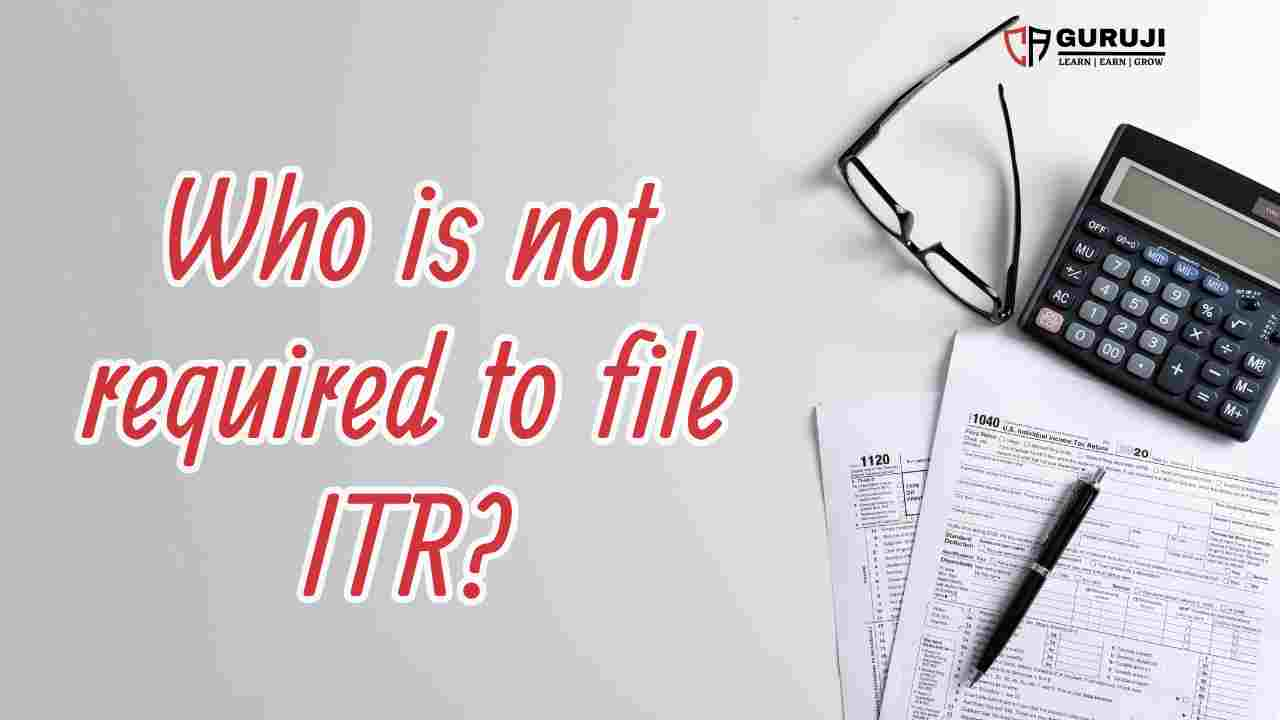Filing an Income Tax Return (ITR) is a crucial obligation for individuals and entities earning income in India. Deadline to file Income Tax Return is 31st July (Non Audit cases). However, there are certain conditions under which a person may not be required to file an ITR as below:
Income Below the Basic Exemption Limit (Section 139(1))
Individuals whose total income for the financial year does not exceed the basic exemption limit are not required to file an ITR. The basic exemption limits for different age groups for the financial year 2023-24 are as follows:
- Individuals below 60 years of age: ₹2,50,000
- Senior Citizens (60 years and above but below 80 years): ₹3,00,000
- Super Senior Citizens (80 years and above): ₹5,00,000

Resident Senior Citizens with Exempt Interest Income (Section 194P)
Resident senior citizens aged 75 years or above, who have only pension income and interest income from the same bank in which they receive their pension, are exempt from filing an ITR if the following conditions are met:
- The bank is a specified bank.
- The senior citizen has submitted a declaration to the bank.
- The bank has deducted tax on the total income.
Agricultural Income
Agricultural income up to ₹5,000 is exempt from income tax. If the total income of an individual, excluding agricultural income, is below the basic exemption limit, they are not required to file an ITR.
Individuals with Exempt Income
Certain types of income are exempt from tax and do not require an ITR to be filed if the total income does not exceed the exemption limit. Examples include:
- Interest from the Public Provident Fund (PPF)
- Interest on savings bank accounts up to ₹10,000
Individuals Receiving Income Below the Taxable Limit
Individuals whose income is only from savings bank interest, fixed deposit interest, and dividend income, and does not exceed the basic exemption limit, are not required to file an ITR.
Exceptions: When Filing an ITR Is Mandatory
Even if the total income is below the exemption limit, filing an ITR is mandatory under certain circumstances:
- Foreign Assets: If you own foreign assets or have signing authority in any account located outside India.
- Deposits Exceeding Limits: If you have deposited more than ₹1 crore in one or more current accounts in a financial year and 50 Lakh or more in Saving Bank Account
- High-Value Transactions: If you have incurred expenses of ₹2 lakh or more on foreign travel or ₹1 lakh or more on electricity in a financial year.
- Business Turnover: More than 60 Lakhs
- Professional Receipts: More Than 10 Lakh
- TDS Deducted: More than Rs.25000 (and Rs.50000 for senior citizens)
- Sale of Assets: If you have sold any assets and want to claim exemption on capital gains.
- Claiming Refund: If you want to claim a refund of taxes paid or deducted.
- Carrying Forward Losses: If you want to carry forward a loss under a head of income.
You can file Income Tax Return yourself for Free
Visit www.cagurujiclasses.com for practical courses












I am
Pradeep Arya
I am working in Banking sector don’t have idea before reading this article how many transactions in financial year we have to do , after reading this article cleared my doubts .
Best regards
Thank you